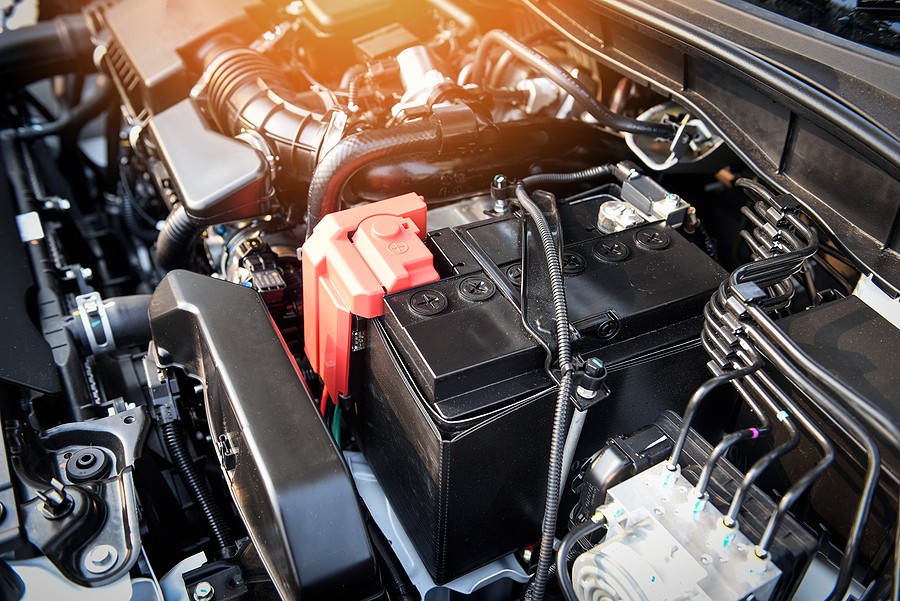Although your engine is expected to last 150,000 miles or more before you start noticing serious problems, there are some instances where you will need to replace it before then. here are the 10 most common signs that could help you answer the question, when do I need to replace the engine?
- Check engine lights illuminating
- Weird smoke out of the exhaust pipe
- Frequent engine overheating
- Weird engine knocking
- Reduction in fuel economy
- Continuous engine stalling
- Rough idling
- Oil leaks
- Engine problems at higher RPMs
- Strong vibration and loud noises
Your engine is a core component in the vehicle, and it has to work all the time properly; otherwise, you'll see significant issues that could make your driving experience a nightmare!
Typically, engines are expected to last up to 150,000 miles before you start dealing with major problems. However, that's an ideal case, and it's not something that you would expect immediately. There are many external factors that could reduce the lifetime of your engine, which means we get to understand and help ourselves answer the question, when do I need to at least the engine?
This article highlights the 10 most common signs to look for whenever looking for an engine replacement. Of course, the symptoms can vary depending on the severity of the problem, but there is a good indication that you should consult your mechanic.
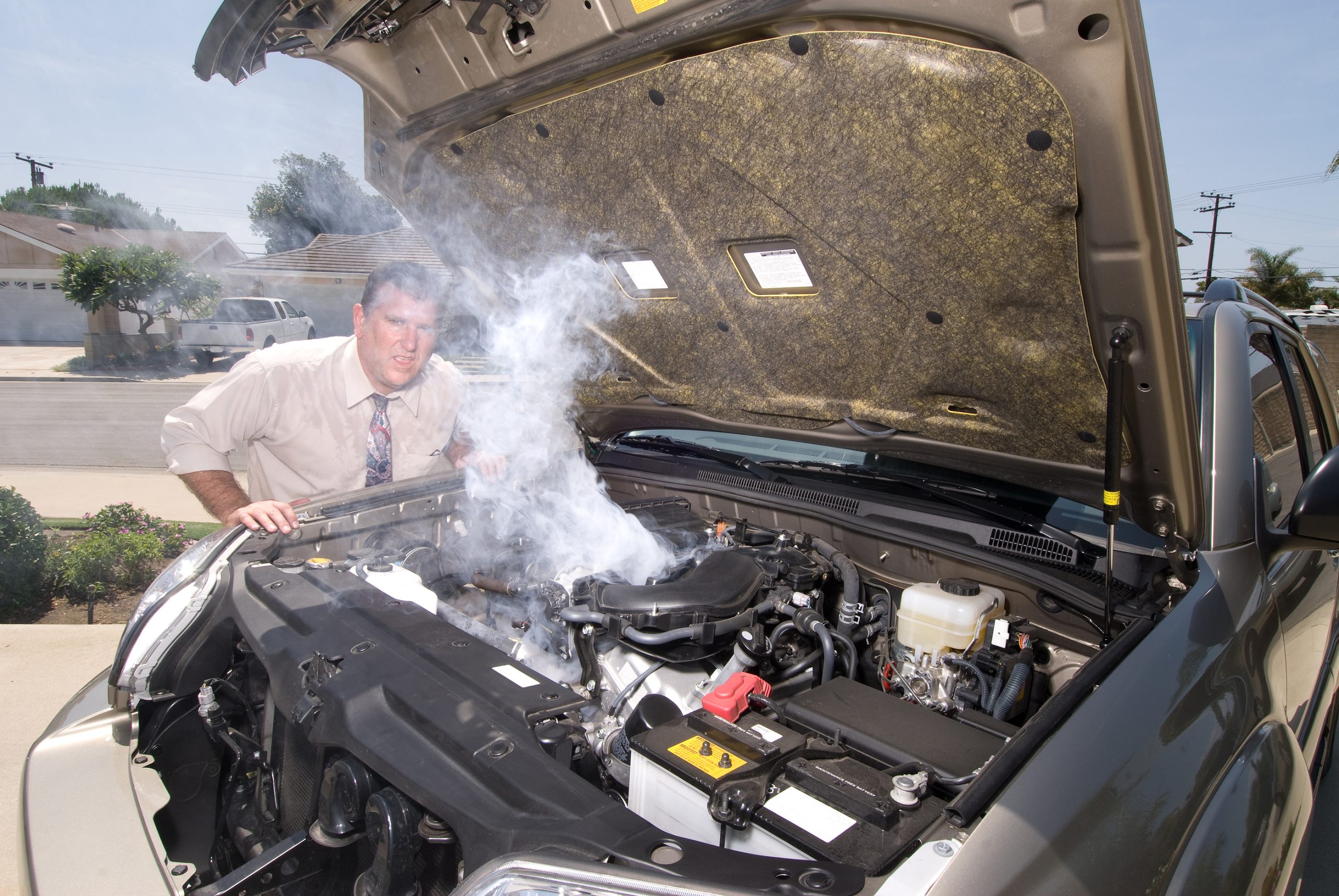
When do I need to replace the engine? 10 signs
Engine problems are very common, and automotive experts put together a short list of the 10 most common symptoms that you have to look for whenever you're curious about potential engine major problems.
The following list highlights all you need to know to help you answer the question, when do I need to use the engine:
1. Check engine lights illuminating
The first and most common symptom you will continuously notice is a check engine light illuminating the dashboard. The check engine light is away from your vehicle to communicate with you and bring your attention to internal problems.
Sometimes these problems can be very simple and can be resolved immediately without installing major components. However, there are continuous scenarios where you see the check engine lights all the time; it means that you're dealing with serious internal problems.
Note that these problems do not necessarily mean problems with the engine itself. It could be an issue with the catalytic converter or probably a problem with the transmission. Therefore, your mechanic needs to perform a full inspection and confirm that the issue has to do with a completely failed engine or an engine that got to the point where it needs replacement.
You don't want to spend any money or go ahead with any action item until you confirm the actual culprit causing the check engine light to illuminate.
2. Weird smoke out of the exhaust pipe
The other thing that you might notice is a weird type of smoke coming out of that tailpipe. Typically, if you're driving a modern car, you won't see any clear smoke coming out of the tailpipe except for this when you're starting after a cold day, and you might notice some clouds of white smoke that will go away immediately after your vehicle warms up.
However, if you don't start your car is building up strange smoke that has very clear colors like black or probably white, it is a strong indication that you might have an internal critical problem. Depending on the small color, it could be an issue with the gasket set that is failing or probably a complete failure in the engine.
When you notice the weird smoke coming out of the tailpipe, you must take it seriously and consult your mechanic immediately because it could mean that you cannot drive your vehicle a single mile.
Your mechanic might even advise you not to drive your car and tell it to the nearest repair station so you don't have to cause further complications that will mean additional money on repair costs.
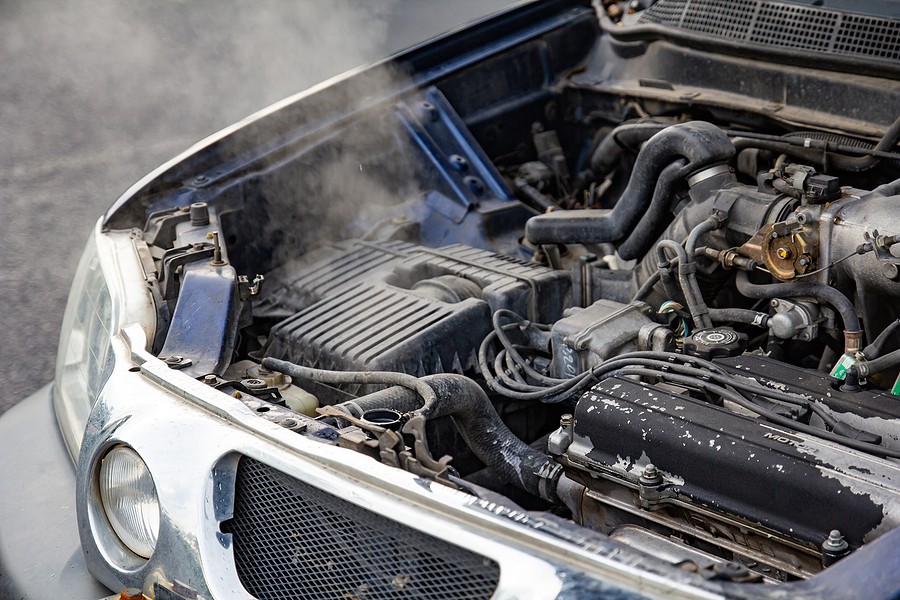
3. Frequent engine overheating
When the engine is stressed, you'll notice frequently overheating. But have you ever looked at the dashboard and noticed that the temperature gauge is reading very high? Do you know that this gauge is responsible for letting you know how hot your engine is?
When the temperature gauge says that your engine's temperature is extremely hot, you are about to deal with significant problems that mean a completely failed engine.
Again, check with your mechanic and see if the problem has to do with the engine or probably with some other components like the cooling system. Sometimes if you have a coolant leak, it will cause the engine to overheat. While the problem could start at the coolant level, it could easily evolve to a point where your engine is completely failed. Thus, you got to act immediately.
4. Weird engine knocking
Like engine overheating, you shouldn't be dealing with engine marking continuously because this could mean that your engine is due for a person. Therefore, if you're still wondering when I need to replace the engine, watch for any signs of engine knocking.
Sometimes your mechanic advises you to go higher with the fuel and purchase a one that has a better octane level to resolve the issue. However, this is not guaranteed, and it could be a strong indication that your engine is getting closer to this lifetime.
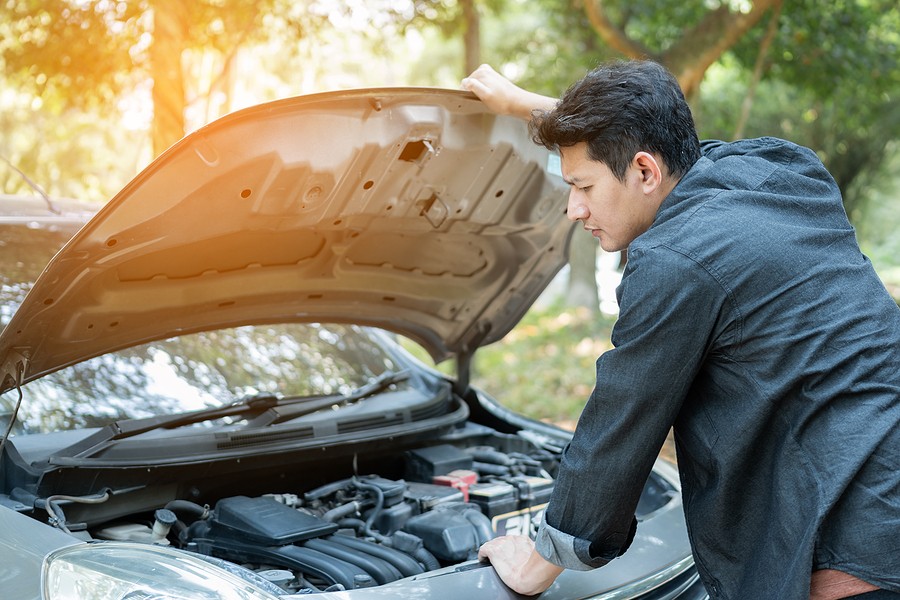
5. Reduction in fuel economy
When the engine is overstressed and reaching the end of its lifetime, you'll notice a significant reduction in your vehicle's overall view economy. But, of course, you won't notice this if you've been driving this car for a couple of months, and it already has some engine problems.
However, if you have had this car for a long time now, you'll notice when you need to visit the gas station more frequently than before. Again, many reasons could cause the vehicle to consume too much fuel than it should, but one could be a completely failed engine or an engine that is getting closer to its lifetime.
6. Continuous engine Stalling
Engine stalling is a critical problem, and it can easily lead you to get involved in major car accidents. Therefore, all the motor experts always recommend taking engine stalling seriously because it's never worth it to continue driving a car that could risk your life.

7. Rough idling
Like engine stalling, your vehicle might start making weird roughing behavior every time you either. Typically, your vehicle should be quiet and won't make any noise if you're sitting idle. However, a rough idling is a strong indication of engine issues, and it's something you need to check with your mechanic.
8. Oil leaks
It's known that when your vehicle is leaking motor oil, it can significantly lead to engine failures. However, it could be the other way around.
In other words, if your engine has lots of wheat seals and it's getting close to the end of its lifetime, then it will break down, and you will start noticing some puddles of oil underneath the car.
Whether it's a problem with the engine or anything else, you must take any oil leaks seriously. Oil is required for your engine to run properly, and whenever you see it dripping underneath the vehicle, it means that your vehicle can have a completely damaged engine in no time.
Therefore, your mechanic can tell you what is going on. The mechanic should be able to help you answer the question, when do I need to replace the engine and determine whether it's related to what you see in the form of oil leaks or not.
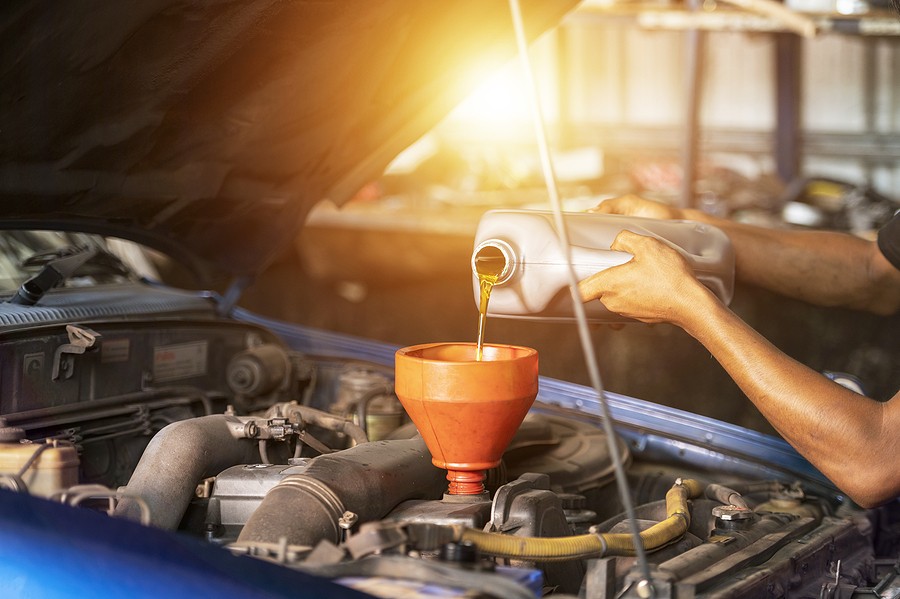
9. Engine problems at higher RPMs
When your engine is running, it shouldn't act differently between higher or lower RPMS unless there is an internal problem. Of course, the engine will consume more energy and work harder at higher RPMs, but it shouldn't be a significant issue or bad behavior.
If you're noticing that your vehicle is acting up every time you try to run at higher RPMs, check with your mechanic and see if it has to do with your engine or if you need to install a new one.
10. Strong vibration and loud noises
As a rule of thumb, automotive experts always recommend never ignoring any weird sounds or vibrations. These could be a critical sign of internal problems associated with many different components.
One of the very common signs that you will notice could indicate needing to be weird loud noises or probably strong vibration. If that's the case, call your mechanic and describe what you're dealing with because you might need a new engine.

How much does it cost to replace the engine, and is it worth it?
Unfortunately, installing a new engine is a significant repair, and it can easily cost you somewhere between $4000 and $7000, if not more. Note that this price range is a rough estimate, and it can differ significantly depending on your vehicle's type. Don't be surprised to deal with engine installments costs up to $10,000 in some luxury cars.
When it comes to deciding whether it's worth installing a new engine or not, it all depends on your specific situation. For example, if you got to a point where your repair costs are close to 75% or more from your vehicle's value, it's not worth the repair, and you should move on by selling this vehicle and buying a better one.
Also, if you're planning for an upgrade soon, it might not be worth investing in the old vehicle because if you think about it and determine how much value it's going to add to your car, you'll find that it's not worth it.
However, if you're planning to own this car for much longer and just bought it a couple of years ago, your option would be to keep it and probably drive it for longer. However, you might be worried that no one will buy this vehicle. The good news is that cash cars buyer is one of the top companies willing to buy your car even if it has major problems with the engine. If you want more details, you can consult our customer service at 866-924-4608.
Therefore, we highly encourage you to evaluate your situation and determine whether this fits your needs and goals or not.

Final thoughts
Your engine is the heart of your vehicle, and when it has problems, you have to decide on installing a new one. It is known that engines last up to 150,000 miles, but this doesn't mean you won't deal with major complications before them.
This article highlighted the 10 most common signs to help answer the question, when do I need to replace the engine? Once you experience any of this science, you need to install a new one.
However, if you notice that repair costs are getting high, you might want to sell this vehicle rather than waste your time, effort, and money. Are you looking for someone to buy your car with major engine problems? Check out Cash Cars Buyer!
Cash Cars Buyer is one of the top-rated car removal companies in the nation that guarantees to pay you the top dollars and provide you with free towing despite your living location around the United States.
Our process is very straightforward and doesn't take more than a couple of days to get your car removed safely and for the most money.
All it takes you is to:
- Describe your car's type and condition
- Receive our instant free quote
- Accept the quote
- Get your car removed and receive your cash payment on the spot!
To learn more about our process and our team, you can reach out to us by calling us at (866) 924-4608 or by visiting our home page click on the free instant online offer.

